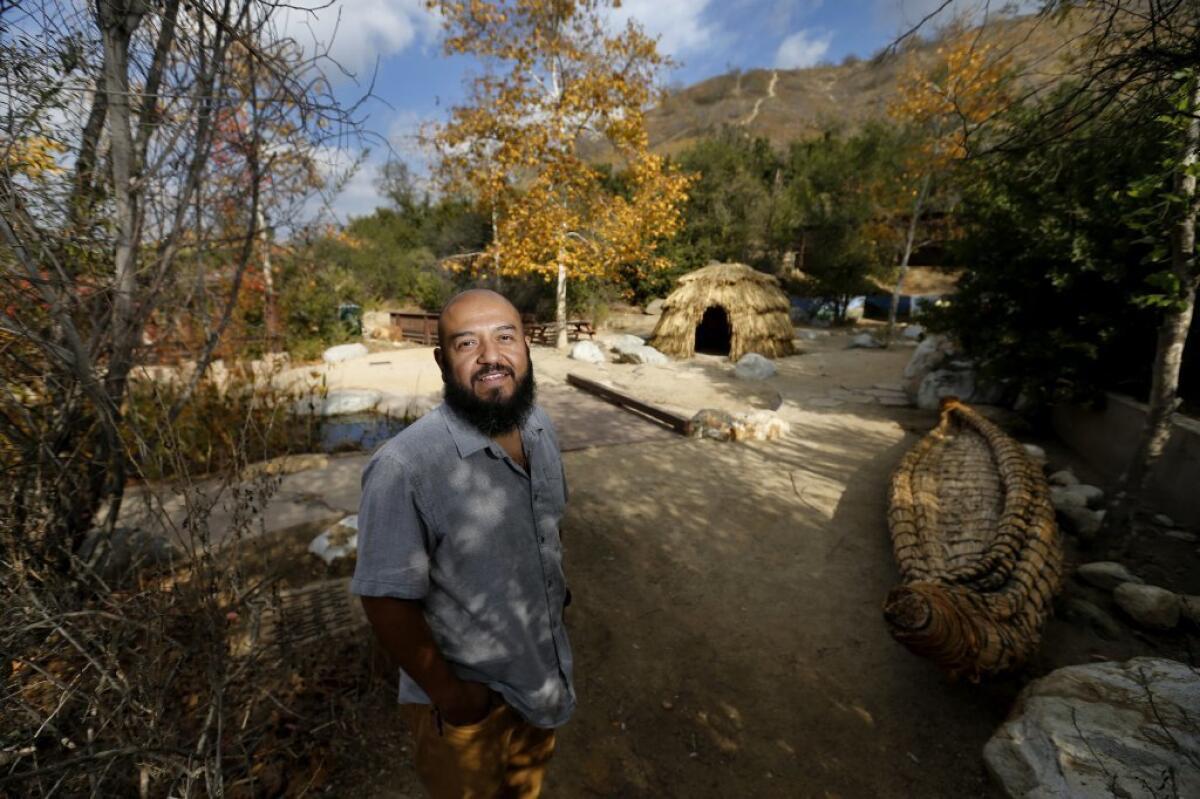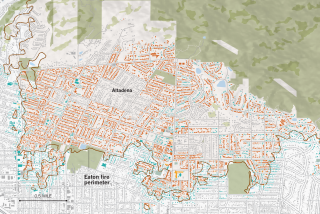Why the Audubon Center at Debs Park doesn’t draw the ‘ethnically diverse’ crowd it hopes for

- Share via
The Audubon Society intended to connect with people it had all but ignored in the past when it built an urban nature center in 2003 on a swath of rolling grasslands northeast of downtown.
The $6.5-million Audubon Center at Debs Park represented the aging, mostly white organization’s commitment to recruiting a new generation of naturalists from ethnically diverse neighborhoods in Los Angeles and across the nation.
Today, 13 years after it opened, critics say the center tucked in the working-class Montecito Heights neighorhood has instead polarized some of the people it was designed to engage in protecting birds and habitat.
We just don’t feel welcome there.
— Raul Macias, a Mexican founder of the Anahuak Youth Sports Association
“Audubon felt that if it plopped this thing down, people would come and donations would pour in,” said Adan Ortega, chair of Mujeres de La Tierra and a former member of the National Audubon Society’s board of directors. “That didn’t happen and it went to pot because it failed to involve communities in the planning process.”
The center’s headquarters, once a showcase of “green” solar technology, has been plagued by costly breakdowns. Transients cut down black walnut trees to fuel campfires. Budget cuts have left three staffers to manage education programs and maintain trails winding throughout 17 acres of green open space along the Pasadena Freeway.
Some community leaders said that they feel used by Audubon officials who recruited them to join their diversification campaign, and no longer support or even visit the center on the west side of the city-owned Debs Park.
Audubon felt that if it plopped this thing down, people would come and donations would pour in.
— Adan Ortega, chair of Mujeres de La Tierra and a former member of the National Audubon Society’s board of directors
“We just don’t feel welcome there,” said Raul Macias, a Mexican immigrant and founder of the Ana huak Youth Sports Assn., which runs a soccer league for 2,000 girls and boys. “But we continue to work very closely with other groups such as Heal the Bay and Friends of the Los Angeles River.”
David Yarnold, president of the 111-year-old National Audubon Society, acknowledged that there are problems between the center and some of its neighbors.
“We all know that the center at Debs Park has a lot more promise than has been realized,” he said. “But it’s best days are ahead of it because Audubon believes in its mission of serving communities.”
Audubon believes in its mission of serving communities.
— David Yarnold, president of the 111-year-old National Audubon Society
Audubon California is discussing plans to lease space and transform it into a hub of community-based organizations and a place for community gatherings and wedding ceremonies, said Gaylon Parsons, deputy executive director of Audubon California.
She said prospective tenants include the Los Angeles Conservation Corps, which employs youths in environmental jobs and helps keep them in school, and the Mountains Recreation and Conservation Authority, a joint powers authority.
“The corps and other community-based groups would be amazing partners,” she said, “and complement what we’re doing at Debs Park.”
That plan is disappointing to critics, including Elva Yanez, a former director of the center, because it has not included input from community leaders.
“Communities, as well as donors, deserve to have a say in this matter,” she said, “so that the same mistakes are not repeated.”
Not everyone feels that way.
Laura Griffith, who teaches seventh and eighth grade at Arroyo Seco Museum Science Magnet, has been leading students on field trips to the center at least once a week for 11 years.
“My students love this unique little niche only a few blocks from school,” she said. “Some of them have made it a kind of second home; a beautiful place they go to just sit quietly without distractions.”
When birds are happy, people are happy.
— Marcos Trinidad, Audubon center naturalist
That kind of talk puts a smile on Marcos Trinidad’s face.
It is Trinidad’s job to ensure the center is a place visitors will find welcoming, and return to with family and friends.
The husky naturalist with an easy smile commands a small army of volunteers who hand out binoculars, information pamphlets and bird guides. They sponsor family bird walks for Spanish-speaking visitors who may recently have arrived from Mexico and Central America, introducing them to phrases such as “community science” and “undesirable plants.”
“We’re doing everything we can,” said Trinidad, 34. “While some folks are bickering over our future, we’re busy adding drainage pits, restoring habitat, educating students and promoting goodwill with our neighbors.”
“Our motto,” he said, “is simply this: When birds are happy, people are happy.”
ALSO
This is what it’ll take to prevent another warehouse fire like the Ghost Ship
$4-million settlement will fund stormwater projects and a ‘green street’ for Watts
Local governments can’t collect taxes from online travel firms
More to Read
Sign up for Essential California
The most important California stories and recommendations in your inbox every morning.
You may occasionally receive promotional content from the Los Angeles Times.










